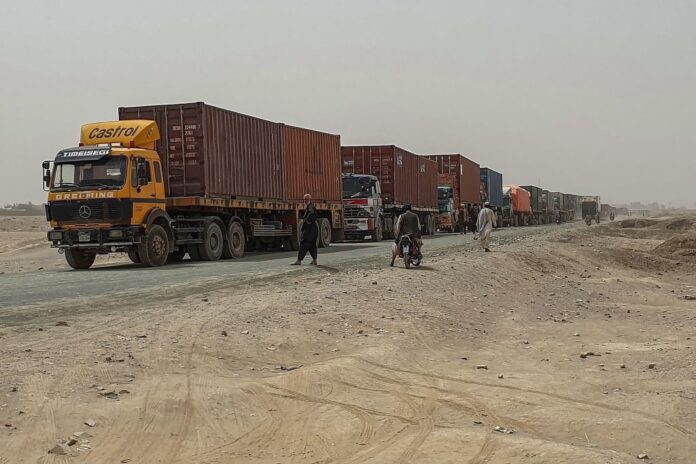The arrival of 150 trucks laden with humanitarian aid and commercial goods from Afghanistan has sparked renewed interest in India’s evolving relationship with the Taliban regime. While India has so far refrained from officially recognizing the Taliban government, this latest development suggests a quiet but strategic shift in New Delhi’s approach to Kabul.
The trucks, which crossed into India via the Wagah-Attari border, carried shipments of dry fruits, medicinal herbs, saffron, and other Afghan produce. The consignment was organized in coordination with India’s Ministry of External Affairs (MEA) and facilitated by various Afghan traders operating under Taliban supervision. Though a routine trade transaction on the surface, the volume and visibility of this movement point to deeper geopolitical undercurrents.
Recalibrating Diplomacy
Since the Taliban returned to power in August 2021, India has been cautiously recalibrating its stance. Unlike Pakistan, China, and Iran, which swiftly opened direct channels with the Taliban regime, India chose a more guarded route — keeping communication lines open while avoiding formal recognition.
However, recent behind-the-scenes diplomatic engagements — including the quiet reopening of India’s diplomatic mission in Kabul with a technical team — indicate that India is now seeking to safeguard its strategic and economic interests in the region.
The arrival of Afghan trucks is one of the clearest signs yet that trade and diplomacy are being used to build a functional relationship, even in the absence of formal diplomatic ties.
Strategic and Economic Interests
India has invested over $3 billion in development projects across Afghanistan over the past two decades, ranging from roads and dams to schools and hospitals. With the Taliban now in control, the Indian government faces a tough balancing act: protect those investments without endorsing the new rulers.
The resumption of trade could be India’s way of maintaining its economic footprint while also building goodwill among the Afghan people. The trucks also carried handwritten notes and letters from Afghan traders thanking India for continuing bilateral trade despite the political complexities.
From a strategic standpoint, New Delhi is also wary of increased Chinese and Pakistani influence in Afghanistan. Engagement through commerce offers India a non-confrontational way to remain relevant and counter regional power plays.
Humanitarian Angle
Another reason for India’s soft outreach lies in humanitarian concerns. Afghanistan has been grappling with a severe economic crisis, food insecurity, and a collapsed health system since the Taliban takeover. India has consistently sent wheat, vaccines, and essential medicines under humanitarian grounds.
The arrival of the trucks can also be interpreted as part of this broader humanitarian framework, helping to ease the Afghan crisis while ensuring India’s role as a benevolent partner is recognized on the world stage.
Challenges and Criticism
Despite these efforts, India’s outreach is not without criticism. Some security analysts warn that increased engagement with the Taliban may embolden extremist elements and undercut India’s traditional alliances, especially with the former Afghan Republic leaders.
Moreover, issues like women’s rights, press freedom, and the Taliban’s ties with terror groups continue to concern policymakers in New Delhi. Critics argue that any engagement should come with clear conditions on human rights and anti-terror commitments.
Conclusion
The movement of 150 Afghan trucks into India may seem like a logistical event, but it marks a symbolic moment in India’s complex relationship with the Taliban. It reveals a pragmatic shift — one that balances strategic interests, regional competition, economic ties, and humanitarian concerns.
While official recognition of the Taliban is not on the horizon, India appears to be embracing a policy of engagement without endorsement — using trade and diplomacy as tools to navigate a challenging geopolitical terrain.





More Stories
Stranded Before the Festival: Air India Flight Cancellation Leaves Dozens in Milan Without a Way Home for Deepavali
Massive Gujarat Cabinet Overhaul: Harsh Sanghavi Promoted, Rivaba Jadeja Makes Political Debut
India Rejects Trump’s Statement on Russian Oil, Reaffirms Energy Sovereignty